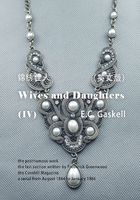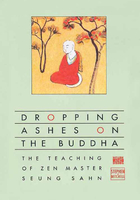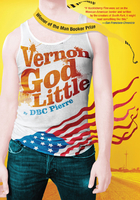ON MONDAY, Miles went to school as usual. His mother was still in Intensive Care and might die at any minute; nonetheless, he had to go to school, he had to teach. He gave himself many reasons why: it was Monday; it was the start of the school year; he was at a crucial moment in poetry; he had prepared no lesson plan for a substitute teacher, and in any case substitutes were either dumb or incompetent. Besides, he owed it to Diane Waring who chaired the English Department. And to that sonofabitch Endicott. He would just have to teach.
In fact, Miles went to school as much out of desperation as out of duty because two nights earlier, on Saturday night, while his mother lay near death in Intensive Care, he had been tiptoeing around the Combat Zone in search of trouble. What if she had died at that moment? He was overcome with guilt.
All through Sunday, until well after midnight, he had waited in the corridor outside Intensive Care, Margaret at his side. He skipped lunch. He skipped dinner. It's better that she die, they told each other. She's been through too much already. But she had not died on Saturday and she did not die on Sunday and they kept waiting dutifully outside the door. At one in the morning, they left the hospital.
And now it was Monday and Miles was still wracked with guilt and his mother was still the same. He called the hospital before he left for school, and he would call after each class, but he had decided not to mention her to anyone in the teachers' room. Who wanted pity?
He pulled into the parking lot, in the section reserved for faculty, and deliberately chose the slot next to Kathy Dillard's new Buick. They sometimes kidded Kathy about substituting cars for a love life, but in fact Kathy had more intimate relations with more people than anybody else in school. They just weren't sexual relations. Kathy was everybody's confidante and cars were her consolation, or so Miles supposed. Anyhow, his battered Pinto was a standing joke, and his peeling orange paint made a nice comment on the glistening silver of her new LeSabre. The contrast was laughable.
Miles himself didn't feel much like laughing. He took a deep breath, and just for a moment he lowered his head to the steering wheel and tried to imagine this was all over. No more hospital. No more craziness. No more obligations. He couldn't imagine it.
He sat back from the steering wheel and tried instead to prepare a face to meet the others. It was the same group every day—Kathy, Jim, Coogan, Miles—the early starters. Kathy was always the first one there and she always brought pastry from Dunkin Donuts. In the old days Miles had made the coffee, but Jim Dietz did it now, or Diane Waring if Dietz was late. Dietz needed lots of coffee, since he drank it in place of alcohol. And then there was Coogan, needy, enthusiastic, a mess. Often there were others—four or five, depending on the day—who just sat around and drank coffee and let Dietz tell jokes while they got used to the idea of another school day. It was a good group.
"Show time," Miles said aloud and got out of the car. As he slammed the door, a hubcap on the back left tire fell off. Miles looked at it, looked around to make sure nobody was watching, and then he jumped up and down on it. It was good to get the poison out. When the hubcap was nice and flat, he tossed it into the back seat of the car and slammed the door. At once the front left hubcap fell off. He burst into laughter. Sometimes that was all you could do.
Jim Dietz was one of the few teachers who hadn't given up cigarettes, but he managed to fill the lounge with smoke all by himself. Nobody complained; the ones who had quit smoking could enjoy it vicariously and the others liked Jim enough to put up with it.
As Miles opened the door he met only expectant silence and a cloud of smoke, and then Jim's voice broke through with his punchline, wet-mouthed, Hungarian: "You mean it was the rooster, darling?" Everybody laughed, and Mike Coogan beat on the table until, as usual, he spilled his coffee.
"God, that's funny," Coogan said. "Have you heard that one, Miles? The Zsa Zsa one? Tell it again, Jim."
Everybody turned to Miles. "How's your mother, Miles?" somebody said, and somebody else said, "Have some coffee. There are major donuts over there, Miles. Jellies." Diane Waring shifted her chair a little so Miles could join them.
The women's-room door banged open and Kathy Dillard stood there. "The custodian forgot to put toilet paper in there again. Can you believe it?"
"Listen to this joke, Kathy," Coogan said. "You missed it. You too, Miles. You'll love it. Tell it, Jim."
"There is no toilet paper again," Kathy said. "God!"
Kevin Foley came storming in the door. "You know what kills me?" he said. "You know what?"
"What?" Miles said, the straight man.
"What kills me is the copy machine. It's broken again. Already. How can it be broken on a Monday morning?"
"It's not broken," Kathy said. "You've just got to know how to use it."
"Well, how do you use it? I can't use it. I can't make it work, and I need it more than anyone." Foley taught American history and gave a daily quiz, multiple choice. "Show me how, Kathy, if you're so smart."
"God!" Kathy said.
"It's easy, Foley. You just open the front part, count to five, and close it again," Miles said. "Then it works."
"That's impossible," Foley said. "Mark my words, it won't work," but he went away anyhow to give it a try.
"I'll do it for you," Diane Waring said, following after him. Diane taught English, but she could handle any machine ever invented.
"Tell it, Dietz," Coogan said, "the Zsa Zsa Gabor one. Come on."
"Give it a rest, Coogan," Dietz said. "Holy fucking Christ."
There was silence for a moment. Dietz was prone to wild shifts in mood, and it was never wise to push him.
"So what's up?" Miles said to Coogan. Nobody had mentioned Billy Mack. Did they know? "What's the gossip?"
Coogan was saying nothing. His feelings were hurt and he was not going to talk.
"None?" Miles looked around the table. "No gossip at all?"
"Zilch," Kathy said. "This is Malburn, you know."
"What about the team? Did we win Saturday?"
"Well, there is gossip," Dietz said. "Scandalous, too." Slowly he lit another cigarette. "Coach showed up sober for the game."
For a moment nobody said anything, and then Kathy broke the silence. "God, Dietz, that's really low." Suddenly everybody got interested in coffee, and Kathy said, "I'm gonna have another raisin danish. Anybody want a pastry?"
"Well, we won a game for once," Dietz said. "In fact, we won by six points. Thanks to Ciampa."
Miles said nothing. Evidently they didn't know about Billy Mack. The incident, as Endicott called it.
"Good for Coach," Kathy said. "He's a great guy."
"Right."
"Right."
"He's a mess, really," Miles said, and immediately wished he hadn't. Why should he join Dietz in being ugly? Dietz thought he had the right to show contempt for everybody's alcohol problem because he himself had had one and licked it. What an asshole. Only somebody as gross as Dietz would make a joke about Coach. But of course Dietz would sell his soul for a joke. Which was appropriate, Miles said to himself, since that's all it was worth. What a case he was. Unhappy, frustrated, surviving on coffee and nerves. A mess.
The Mafia came in, poured themselves coffee, and left. They were Nina Marchese, Tina Castiglione, and Frank Ferrugia—Nina, Tina, and Frank. It was like a bad joke. Nina and Tina were student counselors and Frank Ferrugia, the one certifiable idiot among them, was assistant superintendent. All three wore dark suits and they always traveled together, hence their nickname, the Mafia or, sometimes, the Kneecappers. Dietz stood up and toasted them, "Gentlemen!" when they came in, and again, when they left, he said, "Gentlemen." They nodded both times.
"And we wonder why the kids are screwed up," Kathy said.
Dietz found his good mood restored by the Mafia, and he lowered his head and shook his jowls so that he looked like Ferrugia. "Who do I shoot?" he said.
Everybody laughed except Coogan, so Miles leaned over and punched him lightly on the arm, but Coogan was having none of it. He was giving it a rest.
"Come on, Coogs," Miles said, but Coogs was still holding out, and just then Diane Waring came back into the room.
She gathered up her books, stood for a moment laughing silently—which made Miles say, "What? What?"—and then she said, "Kevin just told me this, and I shouldn't repeat it, but I've just got to. It's a Deirdre story."
"Deirdre!" Miles said. "Terrific!"
Deirdre Forster was seventeen years old and, although she had skipped two grades, she was still in high school because her parents had wasted a lot of time in negotiation with other schools. She had been thrown out of Northfield and Andover and Beaver Country Day before her parents realized their folly and sent her to Malburn High, which cost them no tuition and where the tolerance level for Deirdre seemed quite a lot higher. The problem was that Deirdre had a gift for language, and she said anything to anybody, in words that were often exquisitely right. More than a few of the faculty were terrified of her.
"Poor Kevin," Diane said. "You know how Deirdre gets just before the bell rings—she goes around greeting all her friends and cheering up the lavatories and redecorating her locker, until the spirit moves her to come to class. Well, on Friday, she came twenty minutes late to Kevin's class—they'd already finished the daily quiz—and the usual thing happened: Kevin asked for her pass, she didn't have one, he told her to go get one, she told him that if he wanted one he should go get it himself, and it ended up with Kevin telling her to go to the office immediately. Usually she just says, 'I won't go, and you can't make me,' but this time she stood up and waved her hand airily and said, 'Nothing would please me more than to go to the office … and tell them what a complete asshole you are.' And off she went." Diane laughed and so did Miles. "Poor Kevin," she said.
"Poor Deirdre," Dietz said, and that made everyone laugh, though nobody was sure why.
"I've got to go," Diane said. "Bye, Miles."
"What? I'm not here?" Dietz said. "I'm invisible? A hundred forty pounds of quivering malice and I'm invisible?"
"Bye," Miles said, smiling.
"I didn't mean …" Diane began, her face flushing. Then she shook her head in that way she had, muttered, "You guys," and left the room.
They all laughed.
"She's hot for you, Miles. She's after your body, what little there is of it."
"You're sick, Dietz."
"He's right, for once," Kathy said. "Diane is mad for you, Miles. Really. She's sort of pretty too, don't you think? That gorgeous red hair? If she'd just do something with it, take it out of that damned bun." Kathy fluffed her own short hair. "What's it like, Miles, being pursued by all these women?"
"Come on." Miles shook his head, just like Diane, and everybody laughed—even Coogan—as if they had proved something.
"Tell that joke now, Dietz," Coogan said, "quick, before the bell rings."
At once the warning bell rang—ten minutes to homeroom—and everybody cleared away the coffee cups, picked up their book bags and papers, and in a moment Miles was the only one left.
So. Diane Waring was hot for his body. His ridiculous body. He'd have to tell Margaret.
And nobody knew about Billy Mack's rape or his hysterical mother or the stitches holding his krogies together. Poor Billy. Endicott had managed it somehow, swept it all under the carpet, and had sobered up Coach into the bargain. How had he pulled it off?
Miles chugged the rest of his coffee and was just getting up to go when Jeff Douglas, his face white with anger, threw the door open and looked wildly around the room.
"It's just me," Miles said. "I'm it. I'm the whole audience. And I'm about to leave."
"That bitch," Jeff said, "that miserable, tight-ass, mean-faced cunt of a bitch."
"Cunt of a bitch," Miles said, repeating the words slowly, analytically. "Well, that localizes the problem. Is it our esteemed Endicott you're invoking?"
"Diane," Jeff said. "Your friend, Diane. Do you know what she's done now? Do you know what she just said to me?" He waited for an answer. "I'll tell you what she said. She said, 'I'd advise you for your own good to look for a job elsewhere. I don't see how I can recommend that your contract be renewed.' Can you believe that? And do you know why? Do you know what her reason is for not renewing me—even though I'm the best English teacher in this motherfucking place? I'll tell you why. Because she has 'grave doubts' about my professional judgment. Grave doubts. Her grave doubts. Who the hell is she supposed to be, Madeleine Hunter?"
"Who's Madeleine Hunter?"
"I happen to have written a novel, for Christ's sake, and I've got a publisher who's very interested in it. I went to fucking Harvard. I'm the most successful teacher in this hellhole. And she has grave doubts about my professional judgment? It makes me laugh. Ha!"
"Diane left here just a minute ago. She said all that in a minute?"
"What're you saying, Milo? I'm lying?"
"I'm just marveling at how fast she must have talked."
"What she said, as a matter of fact, in that tight-ass voice of hers, was 'Please see me after school, Jeff, after you've read my note.' The bitch. The note was just a copy of last spring's evaluation."
"So, in fact, she didn't say anything except that you should see her after school."
"She's out to screw me and I'll tell you why. Because I'm the real thing and she's just a fake. She can't stand having somebody around who's really in touch with the kids and who knows what they need and what they want. I know how to talk to those kids. That's what she can't stand—having a real professional around who makes her look bad."
"This is too complicated for me," Miles said, and slung his book bag over his shoulder. "I'm jes a simple ol' high school teacher. Besides, I've gotta make a phone call."
"Sure, you've got tenure. You've got everybody's sympathy because of your mother, and you've got fucking tenure besides. You don't give a shit about anybody else."
Miles turned away from him and started to the door.
"Don't you dare turn away from me."
Miles paused.
"You ignorant little Irish queer."
Miles stopped then, and rounded on him. "Jeffrey, you are an immature, self-important, self-deluded Harvard … novelist. Which is to say that you are irrelevant to me and to my life. But when you call me an ignorant little Irish queer, it makes me want to crush you, like a gnat. And I'll do it, if I have to, if you make me. So stay out of my life. Got that?"
Jeff stared at him, astonished.
"You disgust me," Miles said, and closed the door quietly behind him. He went to the office to phone about his mother.
The bell rang for homeroom.
Endicott was concluding his little blackmail talk to Hacker, Tuna, Cosmo, and the two others, and he was feeling satisfied. They were on the run, they had the proper hangdog expressions, and there was no suppressed laughter that would surface as soon as he turned his back. They knew this incident had landed them all in deep kaka.
He had been right to get to the parents first and to come down hard on them. And he had been smart to handle Billy Mack's parents the way he did; that redneck father could now be counted on to keep the matter quiet. But it was only after he had phoned Miles in the middle of the night, and Miles had been such an uncooperative little shit, that he had thought of this double-bind: use Miles and these five kids against each other and guarantee silence forever.
"I'm not going to make any kind of threat to you boys; I'm not even going to raise my voice. I just want to point out—quietly but clearly, so you'll remember my words—that what you're guilty of is a felony, a crime punishable by a lengthy term in … jail. It means that you'll have a record, that jobs you'll want—in the post office, the police department, any federal agency—are closed to you forever. It means your parents will never be able to hold up their heads in this community again."
He paused and the boys shuffled their feet; he had, of course, kept them standing.
"You understand that, I see. Now let me be clear on this most important point: what you're guilty of is provable in a court of law. It wouldn't be your word against Billy Mack's. There was a witness."
Cosmo stood with his head lowered and the others shot glances back and forth at each other.
"Mr. Bannon is that witness—Cosmo Damiani can verify that for you if you have even a moment's doubt—and Mr. Bannon is fully prepared to testify in court. So you see, you're not just accused. You've already, in a sense, been found guilty." He paused, three beats. "However, I have no intention of ruining your future lives because of this one great mistake. Nor, frankly, is it in the interest of Malburn High to have this unfortunate incident appear in the newspapers. So I have spoken to Mr. Bannon about this and I have secured his silence. And now I want to be very clear with you."
He stood up.
"I am prepared to forget this incident ever occurred … unless, of course, it somehow gets out and becomes public. If it becomes public, gentlemen, then—we had a saying in the army—then your ass is grass. I won't lift a finger to keep you out of jail." He paused. "If, on the other hand, it remains buried, forgotten, then I too will forget about it."
He sat down. "Am I clear?"
All five of them nodded solemnly.
"There will, of course, be an appropriate punishment for each of you. I will look into that matter later in the year. For the time being, this incident has never occurred. You may go."
They filed out, not even daring to look at one another.
Miles was on his way to the office to phone the hospital and check on his mother. He was still shaking from his encounter with Jeff Douglas, and as he passed the five boys, he blushed and lowered his eyes, as if—absurdly—he were the guilty one.
Billy Mack was coming out of the first-floor men's room when he heard someone call his name. He looked around, but the corridor was empty. "Billy," he heard again. He walked to the stairwell, and there, halfway down the stairs to the basement, he saw Coach beckoning to him.
"I've got a pass," Billy said, and held it up—a little red plastic square that showed a student had permission to be in the halls during class time. But he could see that Coach didn't care whether or not he had a pass. For once Coach didn't look drunk. He was gray. He looked dead.
"I've got to talk to you, Billy."
Billy shook his head, no.
"Please." His voice broke. "Please, Billy."
Billy looked around, hesitated, and then he went down the stairs and stood next to Coach. "What?" he said, and his voice was hard.
"Billy, I'm so sorry," Coach said. Tears started from his eyes and he threw his arms around the boy, clutching him to his chest. "I'm sorry. I'm sorry."
For a second Billy began to surrender to the tears and the embrace, but only for a second. He pushed against Coach's chest, whispering, "Let go of me. Let go of me." Coach understood finally and released him. And Billy, half blind with fury and contempt, leaned into him and said, "You bunch of faggots. You fuckers. You rotten fuckers!"
Billy began to tremble and he tried not to cry, but suddenly everything went black and, where Coach should have been, there was only a shimmering gray outline of a man. Billy blinked, but his vision would not return. He felt a hard vein pulsing in his head and he couldn't think. He wanted only to plunge a knife into that shimmering gray outline till it ran red with blood. He turned to go up the stairs, but he could not see and his legs would not support him. He leaned against the banister and sank to his knees on the basement stairs. Slowly he curled up in a ball, silent, as Coach stood above him with his hand outstretched, afraid to touch him, afraid to offer help.
At this moment Miles was coming down the stairs from the second floor. He was feeling high-spirited because he had just conducted a lively discussion of "Miniver Cheevy" and it had gone very well. He was reciting the poem to himself as he descended the stairs.
Had he turned his head a few inches to the right, he would have seen Billy Mack crouched on the stairs below him and Coach leaning over the boy, afraid to help and afraid to leave him. But Miles was still caught up in his class discussion and, staring straight ahead, full of bounce, he said aloud,
He wept that he was ever born,
And he had reasons.
He went to the main office to phone the hospital.
It was now the period before lunch and Miles was prefecting study hall. Most of the kids were hitting the books, or pretending to, and Miles was more amused than annoyed by Mark Russo and Michelle Stein who held hands across the aisle while they studied, so it was a nice time to take a breather and correct a few mini-essays. He called them mini-essays to flatter the kids into writing them. In fact they were paragraphs, and damned short ones, too.
He had taught two good classes on Edwin Arlington Robinson this morning, and they had left him feeling nice and high, but his third-period class in composition had brought him back down to earth. Comp was always a problem. He began to plow through the stack of papers, paragraph by paragraph. Comp was definitely a problem.
Now, a half hour into study hall, Miles pushed aside his papers and looked around at the kids, a cross-section of Malburn High: a couple of goof-offs, a loser here and there, the president of the Senior Class, half the girls' basketball team, two of the ten blacks in the school, one of the Puerto Ricans, a few guys from track, Jeannie Adams who wanted to be a fashion model and certainly had the looks for it, and a whole lot of semi-anonymous, hardworking, good-looking kids. They were a really nice crowd.
Then, from the back of the room, in the last seat in the row near the windows, he saw Billy Mack staring at him. No emotion on his face. Just that intense look the kid had so often fixed on him last year in English class. Flustered, he smiled at Billy and nodded, but Billy just looked back at him, expressionless.
Miles returned to correcting his paragraphs, though he had trouble concentrating until he hit Lombardi's—a lulu on using AIDS for population control—and then finally the study hall was over. Everybody began talking at once, and slamming desktops, and charging for the corridors. Mark Russo and Michelle Stein, still holding hands, were making their way slowly out of the room, silent, staring into each other's eyes. From the corridor came the crash of metal on metal as the locker doors were slammed, and slammed again, kicked open, slapped shut, punched and counter-punched, in the continual effort to ring as much noise from them as possible.
Miles had long since learned to live with the locker noise and he used these few minutes of shouting and slamming and frantic movement to finish corrections on one of his little paragraphs. "Terrific," he said aloud, piled up his papers, and shoved them in his backpack. He stood up and looked around the empty room and only then did he notice Billy Mack standing at the door.
"Billy," he said. "Hi."
Billy left the door and came to stand in front of him, his eyes lowered. He opened his mouth to speak, but nothing came out. He had the look of a condemned man.
"How're you doing, Billy?" Miles said, and put his hand on Billy's shoulder. "You all right? Are you okay?"
Billy flinched and Miles withdrew his hand.
"I don't know what to say, Billy, except I'm really sorry about what happened."
"My mother said you wanted to talk to me."
"Sure," Miles said, swallowing. "If you want to talk? Sure."
Billy shrugged and looked down.
Miles could see he was in agony. He wanted to put his arms around the kid and tell him it was all right, he should just cry, just let it out. But, for all his history of imprudence, Miles knew that you never—underlined—never hugged a kid.
"Look, Billy, you don't have to talk with me. Why don't you talk to one of the counselors? That's what they're for. And maybe you'd feel more comfortable with one of them than with me. Okay?"
Billy took a step toward him and, fighting back tears, he said, "Last year in class, did you … ?" But the tears started, and he raised his hands to his eyes. At that moment, of course, the door swung open, banging the wall, and that idiot Polcari came charging into the room. He looked scared, but his face cleared and he smiled as soon as he saw Miles.
"Hey, Milo. How're you doing?"
"Not now, Polcari. Would you mind staying outside?"
Polcari looked over at Billy and then back at Miles. He went white. "Hey," he said, and pointed to Billy. "Is he all right?"
"He's fine, Polcari. And I'm fine. And you'll be fine if you just get your miserable behind out of this room."
"My lunch," Polcari said, moving toward his desk, his attention fixed on Billy the whole time. He got his lunch, held the paper bag toward Miles, and said, "See?"
Billy walked quickly from the room.
"Geez, Milo," Polcari said. "He was crying."
"Get out of here, Richy. For Christ's sake, just get out!" Miles grabbed his backpack and took off for the principal's office.
Once again Endicott stood at the window overlooking the front entrance to the school, his hands braced on the window ledge, ignoring the person behind him. It was a posture he was famous for; it meant he was furious. Right now he was furious at Miles.
During the daily announcements he had had Miles paged, and then during each of the morning classes he himself had said over the intercom that Mr. Bannon should report to the principal's office, and finally, during study hall, he sent a boy with a note summoning Bannon to his office at once. Now, during the first of the two lunch periods, Bannon had the gall to show up without an apology, an excuse, or any sign that he realized he was in deep kaka.
The principal turned and faced him.
"I'm glad you finally found the time to come and see me," he said, his voice rich with sarcasm.
"I'm a teacher—I was in class. And then in study hall."
"I summoned you. How did you know it wasn't an emergency? Or something about your mother?"
"Because I phoned the hospital between each period. I knew my mother was all right."
This was too much. "You mean you were out in that office"—he pointed to the reception area, beyond his door—"using the phone to call your mother, and you chose to ignore my repeated …" He cut himself off. About-face! No point in expending ammunition on the wrong target.
"It's about the Mack incident," he said, his voice calm. "The boy is back in school. He's had a few stitches, but he's fine. He's doing very well. I've spoken to his parents, as you know, and to the parents of the boys involved—good boys, very promising. No sense injuring their futures by letting any of this get out. Everybody—everyone without exception—has agreed it's better for all concerned to just keep this incident quiet. No teasing of the boy, no punishment for the others, and so forth, et cetera. The less said about any of it, the better. And nothing in the papers. Do you see?"
Miles looked at him.
"You understand, Bannon?"
"It's your incident," Miles said. "I'm sure you're dealing with it as you see best."
That was good, but not the guarantee he'd hoped for. "I'm thinking of you as well, Bannon. If you see what I mean."
Miles gave a half-smile. He didn't see.
"It would be hard, it would be … difficult … if you had to explain how it was that you witnessed the incident."
"I didn't witness it. I heard the noise and I found Billy Mack lying there."
"But you know how people are. They'll wonder how you happened to hear the noise and why you did nothing to interfere. The question will be, Why did you let this happen?" He paused. "Isn't that right?"
"You know how I heard the noise. Faculty lockers are right next to the boys' lockers, and you can very easily hear when they're roughhousing. And that's why I did nothing to interfere. I thought it was just teenage horseplay. You know that."
"I know that, of course. But you know how people are. Someone is bound to ask, If you thought it was just teenage horseplay, why were you snooping around in there after you thought they all left?"
"That's not how it was."
"But someone is bound to ask it. What were you doing, at five o'clock, in the boys' locker room?"
"Okay, let's stop all this crap," Miles said. "What is it you want from me? You want me to promise I won't talk about this in class? I won't. You want me to promise I won't put it in the newspaper? I won't. If the best thing for Billy Mack is to keep this thing quiet and let those five rapists off scot free, then go ahead and do it."
"Very good. Very good. Then you see my point."
"But don't try to blackmail me into silence in this sleazy way. I'm clean as a razor. You don't have a prayer."
"Blackmail is scarcely a word I'd ever use, Miles. I was merely trying to point out to you what people would think."
"They'd think I was hanging around locker rooms to watch teenage boys undressing? That's what they'd think?"
"Now, now. Why do you take everything to extremes?"
"I know the families of these kids a lot better than you do, Endicott, and I can assure you they don't think that way."
"Let's get back to the issue, Miles. I was urging you not to mention the incident to anyone because that is what the boy wants, and what the family of the boy wants, and because, as you yourself see, that's the best thing for the boy."
Miles moved in close and jabbed Endicott's lapel with his index finger. "Don't ever try to blackmail me like that again," he said, and walked out of the office.
Endicott watched him go and then, a little unnerved, he turned to look out the window. Miles Bannon was a talented teacher, maybe, and he had a lot of home troubles, certainly, but the U.S. Army would see him in a different light. Besides the insubordination, they'd see there was something peculiar about him, something soft and a little bit feminine. He was emotional. He was one of those artsy bachelors addicted to movie gestures, like that ridiculous jabbing with his finger. He was very possibly a closet queer.
But, to be fair, he was good at his job. The kids learned something. The parents were crazy about him. He was very, very articulate. Nonetheless, Miles Bannon would bear watching. And if he ever got anything on him, anything that would stick, old Miles could just bend way over and kiss his ass goodbye.
Upstairs, in the corridor outside Dietz's homeroom, the horseplay was just beginning. It had started simply enough. Polcari was going through the doorway where a bunch of the Roid Boys were standing and Hacker turned suddenly and bumped into him, hard, and Polcari had said, "Hey!" a high, girlish, complaining sound that made them laugh. "Hey!" Hacker said, and then Tuna said, "Oh you!" and slapped Polcari's chest with a limp, open hand. "Meanie," Hacker said, and he too slapped Polcari. They laughed loudly, and everybody around them laughed, and so they did it again. "Hey!" one said, and "Mean thing!" the other one said, more girlish and more exaggerated this time, and then the horseplay began in earnest.
It was safe enough, because homeroom hadn't yet begun and besides, they had seen Dietz step into the bookroom for a quick cigarette. They had at least ten minutes for a good time with the Polecat.
"Mean thing!" Hacker slapped Polcari harder.
"Hey!" Tuna slapped Polcari harder still.
"Meanie!"
"Hey!"
Polcari pulled away, but they followed, slapping at him till he made a break for it, running down the aisle between the desks to the door at the front of the room. But there he was confronted by two other Roids just waiting for him.
"Oh, he's so fresh!" one of them said, and punched him on the arm.
"Fresh thing!" the other said, and punched him harder.
Polcari stood for a moment, looking from door to door while they punched him, and then he ran across the front of the room and down the aisle to the center.
Swiftly, silently, with no need to plan, Hacker and Tuna peeled off and took the far corners of the room. Now there was no exit. They began slowly to close in on him. Nobody was laughing, and the four began to shout to each other in order to get through this.
"He's looking dangerous," Hacker said.
"He'll scratch our eyes out."
"Here, kitty, kitty. Here, kitty."
"Here, pussy, pussy."
This made them howl with laughter. "Here pussy, pussy," they were all shouting, and then the bell rang for the start of study hall.
The other kids began to drift into the room, so two of the Roids just stopped and wandered out to the corridor to get their books, but Hacker and Tuna closed in on Polcari. Hacker grabbed him around the chest and pulled his arms behind him and held them there while Tuna, not knowing what to do, just looked on. But then he was inspired, and he opened the desk nearest him and pulled out a felt pen. "Pussy, pussy," he said. "Nice little pussy polecat," and while Hacker held Polcari's arms behind his back, Tuna drew long blue whiskers on Polcari's face, crooked ones because Polcari kept fighting him, twisting his head away.
"Dietz's coming," somebody shouted, and Hacker and Tuna let go of Polcari and made a dive for their seats. Kids started slamming lockers and others tossed their books around—onto their desks or onto the floor—and a few were opening desktops and banging them down just to add to the noise a little. Pretty soon everybody was seated and still there was no sign of Dietz.
It was Cosmo Damiani who had shouted, "Dietz's coming." He hadn't been able to think of any other way to make them stop, and he couldn't endure it, and he couldn't go away.
Dietz came out of the bookroom then, and seeing Miles coming up the stairs, gave him a thumbs-up sign. He looked around the corridor and saw that for once there were no kids still loitering; just Cosmo Damiani, who was bent over on one knee rummaging through his locker. "Get a move on, Cosmo," Dietz said, and moseyed into his study hall.
When Miles reached the top of the stairs, he paused for a second and thought of saying something nice to Cosmo, but he had just phoned the hospital again and could think only of his mother, who was the same—not really alive and not really dead—and he couldn't think of anything to say. Besides, Cosmo looked as if he was burrowing into the damned locker, so why bother him? Miles went down the corridor to his last class, in American Lit.
In study hall Dietz flipped through a pile of papers and then glanced around to see who was absent and then he strolled to the window and looked out.
Polcari sat motionless, staring at his hands. He felt wet and cold and his shirt was sticking to him, but he had lived through it, it was almost over. There were giggles, of course, and kids kept sneaking looks at him, until finally Dietz turned from the window and noticed what was going on.
"For God's sake, Polecat," he said, "go and wash those whiskers off your face. You look like a clown."
Polcari got up and left the room, and it was over.
It was two o'clock and Diane Waring had been waiting a full half hour for Jeff Douglas to show up for his appointment. As English chairperson, it was her job to write quarterly reports on new teachers and, at the end of three years, to recommend tenure or dismissal. A final decision depended on others—the principal, the superintendent, the School Board—but the process began with her.
This was the one part of the job she really hated: sitting down with a teacher to tell him yet again that he was doing unsatisfactory work. Actually, in Jeff's case, the work was more than satisfactory; it was Jeff himself who was the problem. He was completely lacking in professional judgment.
Already this year—and they were barely five weeks into it—Jeff had told Cosmo Damiani that he was so full of shit his eyes were turning brown; he had asked Michelle Stein not to sit near the window because the light came right through her head and caused a glare; he had called Mark Russo a dago—Mark Russo, no less, whose father was a member of the Family and could have Jeff terminated in less time than it took to apologize. These things were reported at home, and the parents called in, or sometimes they came in, and always it was Diane who had to deal with them. Jeff had no sense, no professional judgment, and she had been unable to get him to realize this and do something about it.
Their interviews always followed the same worn track. She would explain the problem, give examples, and insist he at least watch what he said. He would claim he was a writer and therefore an exception, or the others were jealous, or there was no place for first-rate teaching in today's schools. And they would end where they began, with his insistence that he was above mere rules.
"I'm the best teacher you've got," he always said.
"You're a very good teacher," she would say.
"I'm the best."
"No, as a matter of fact, you're not. There's Miles, and there's Ellen, and Pat, and Susan, and there's a number of people who have equal success in the classroom. And, in addition, they have good professional judgment. They know—and you should know—there are things a teacher simply does not say. Or do."
"I'm unconventional. I get right to the kids and they respond to me. That's why the others are jealous."
"Jeff. You're very bright. You're very good with some of the kids, but …"
"I happen to have written a novel! I happen to have a publisher who is very interested in it!"
"But you cannot make jokes about one student in front of the others, and you cannot insult them. These students are people, they have feelings, and you cannot ridicule …"
And at this point Jeff would walk out or fall silent or cross his arms in front of his chest to block her out, this stupid, tight-assed, jealous woman.
That was the invariable track their interviews followed, but this one would be different. She had rehearsed what she would say to him when he arrived. If he arrived. She would be brisk and professional. She would be firm. She would lay out the facts for the last time—he was to shape up or else—and then she would call an end to the session. None of his pouting, this time. No claims to superiority. No novels and interested publishers. This time, as Endicott liked to say, his ass was grass.
The minutes ticked by and Jeff failed to appear. She had papers to correct, classes to plan, book orders to fill out, but she could concentrate on nothing. Where in hell was he? Gossiping about her somewhere, probably. Down in the men's room, telling them all she was tight-assed and mean. She stood up and ran a hand from her waist down over her buttocks. She tried to relax. Tight-assed, indeed. What infuriated her most was his freedom to say anything he liked about her and about his tenure case, whereas she was obliged to confidentiality. She could not even defend herself. It was maddening.
Finally the two-thirty bell went off, the end of the school day, and immediately there was the slamming of desktops, lockers being kicked and shaken and banged, shouts up and down the corridors, whistling, cursing. It sounded more like a jailbreak than the end of the school day. And still no sign of Jeff Douglas.
She waited until the corridors cleared a little and then went down to the main office. She would check for messages and pick up the Xeroxed sheets for her department meeting, and she would put Douglas out of her mind until she actually had to deal with him. Fuck him, she thought.
Endicott came out of his office as Diane entered the reception area. There was a divider with a nice wide countertop that separated the secretaries' desks from the waiting area, and Endicott leaned across it eagerly for a little chat with Diane.
"Everything going well?" he asked. "I don't get to see enough of you these days."
"I'm fine," she said. "Just getting my Xeroxes," and she scooped them off the counter and cradled them in her arms. "And—I suppose you should know—Jeff Douglas failed, again, to show up for his tenure conference."
But Endicott had other things on his mind. "No school gossip I should know? Just to protect my flanks?"
"So far as I know," she said, "your flanks are perfectly safe."
They laughed together, and the secretaries laughed, and then someone said, "Official merriment! Now that's a first at Malburn!"
Diane turned and there beside her was Jeff Douglas. She was determined to remain pleasant, just in case he had a legitimate excuse, and so she smiled. "You stood me up," she said.
"What do you mean by that?"
"We had an appointment at one-thirty this afternoon in my office. Remember?"
"One-thirty is my free period."
"That's why I asked you to meet with me then."
"Yeah. Well, I had something else to do."
"You might have had the courtesy to let me know."
"Why? Were you going somewhere?"
Diane looked at him, and then looked at Endicott, who winked at her as he disappeared into his office. She said to Jeff, "I want to see you in my office, please. Now." She turned smartly and started down the corridor. She could hear Jeff saying something to one of the secretaries and then there was a small burst of laughter. Her eyes stung but she kept looking straight ahead.
Miles was waiting outside her office door.
"Diane," he said, "could I be excused from today's meeting? I've got to get to the hospital."
She fumbled for her key and finally got the door open. "Yes," she said. "Of course. Is it your mother?"
"She's dying," Miles said, "she's in the hospital. I haven't mentioned it to the others. So I'd prefer … ?"
"No, of course not. I won't mention it to anyone." Tears sprang to her eyes, because she wanted to murder Jeff Douglas, and because she felt bad for herself, and because nice people like Miles had to cope with the long slow deaths of their fathers and mothers, and because it was all so unfair. "Take care of you, Miles," she said, and placed her hand on his cheek. She gave him a tight smile, and went quickly into her office.
Miles, near tears himself, went back to his homeroom to get his books. He was so absorbed in his thoughts that he failed even to notice Jeff Douglas, who all this time had been standing at the end of the corridor, watching.
Miles had used his free period to sketch out lesson plans for the rest of the week, just in case a substitute took over for him, and as he slipped the plan book into the top drawer of his desk, he felt the weight of all the make-up classes he would have to give. Time now in the hospital. Time future making up for it.
He stood at his desk, about to cram his battered Strunk and White into his backpack, when he looked up and saw Billy Mack standing just inside the door. He thought of Diane as she fought back tears, and of his mother who was dying in the hospital, and now here was poor Billy looking dazed and lost, and he would have a hundred make-up classes when all this was over, and it was all too much. He had nothing left to give.
Nonetheless, he did what he had to do. He sat down and tossed Strunk and White onto his desk. Hooking his foot around a chair leg, he pulled the chair toward him, indicated it with an open hand, and said to Billy, "Come on. Sit down."
Billy approached the desk, shifted from foot to foot, and then sat down. "Well, what?" he said, belligerently.
It was the same hostility Miles had fought all last year, but now it struck him as just a pitiful kind of armor. He could reach over and push it away, and there, beneath it, would be the real Billy.
"You don't have to fight me, Billy. I'm on your side."
"What's that supposed to mean?"
"It means that if you want to talk, you can. If you don't want to, you can just sit here for a while, and that'll be okay too. Whatever you want."
"My mother said you wanted to talk with me."
"No, that's not how it was. She asked me if I would talk with you, and I said yes, of course, if you wanted to."
"She said you wanted to." And, under his breath, he said, "That bitch."
"Well, I do want to talk with you."
"So?"
So now he would have to improvise. Miles leaned back in his chair and rubbed his face with his hands.
"Look," he said, and leaned toward Billy. "What happened to you was really awful. I mean, the physical pain must have been terrible, just … terrible, but my guess is that the sense of being humiliated is even worse. Right?"
Billy's face was a frightening red.
"I know. I know. It was a game or a practical joke and it got out of hand. Right? They were just giving you a hard time because they like you and because you're just one of the team, right?"
Billy said nothing.
"These things happen. Crazy things. It happens when you get a bunch of guys together, teenagers, and they're all hopped up with hormones and everything, and if somebody has a drink or two … well, these things sometimes happen."
"But why me? How come they did it to me?"
"Oh, Billy, it could have been anybody. You just were there at the moment they went a little crazy. You were a little smaller than the others. You were the nearest target. Who knows why? It doesn't mean they don't like you."
"My father thinks so."
"I'm sure he doesn't think that. I'm sure he doesn't."
"My father thinks … Shit, never mind."
Miles looked at his hands and forced himself to say nothing. He'd been through this kind of conversation before, where the student claimed he didn't want to talk, when in fact that was the only thing he wanted. Some time passed.
"Did you—last year when I had you for English—did you think I was … ?"
Miles felt himself getting red.
"What?" Miles said, talking fast. "Did I think you were the butt of practical jokes? Did I think you were being teased by guys on the team? Did I think you were—I don't know what—gay? No. Of course not. There's nothing about you to make anybody think that, Billy. Of course not."
Billy kept staring at his feet, but after a while he raised his head and looked at Miles, with that same cold and unforgettable look of hatred, but Miles saw now that it was only a mask.
"You think you know me," Billy said, standing. "You don't know anything about me. You don't know. What do you know?" And he ran from the room.
Miles stood looking at the door long after Billy left. What should he have done? What could he have done? He asked these questions silently, the responsible teacher. And he answered them: he had done what he could, he had done what seemed best, he was a responsible teacher.
But he found his pulse racing and he was strangely excited, because he saw unmistakably, and for the first time in his life, that someone was in love with him.














